Key Takeaways
1. History is the unfolding of freedom's consciousness.
The history of the world is none other than the progress of the consciousness of freedom.
Progressive realization. Hegel viewed history not as a random series of events, but as a purposeful journey toward the realization of freedom. This freedom isn't merely political or social, but a deeper, more profound understanding of the self and its place in the world. Each historical epoch represents a stage in this unfolding consciousness.
From Orient to modernity. Hegel traced this progress from the ancient Orient, where only one person (the ruler) was considered free, through the Greek and Roman worlds, to the Germanic world, where the Reformation and the Enlightenment paved the way for individual liberty and rational governance. This journey is marked by increasing self-awareness and the gradual overcoming of external constraints.
Freedom as the goal. This perspective provides a framework for understanding historical events. Wars, revolutions, and social transformations are not simply power struggles, but manifestations of humanity's inherent drive toward greater freedom and self-determination. This idea profoundly influenced later thinkers, including Marx, who adapted it to his own materialist framework.
2. True freedom lies in rational, universal principles.
In duty the individual acquires his substantive freedom.
Beyond abstract liberty. Hegel distinguished between "abstract freedom," the ability to do as one pleases, and "substantive freedom," which is found in acting according to rational, universal principles. The former is arbitrary and easily manipulated, while the latter is grounded in reason and leads to genuine self-realization.
Reason and universality. For Hegel, reason is inherently universal, meaning that it applies equally to all rational beings. True freedom, therefore, consists in aligning one's actions with principles that can be universally applied and rationally justified. This echoes Kant's categorical imperative but goes further by emphasizing the social and historical context in which these principles are realized.
Duty as liberation. This concept might seem paradoxical, but Hegel argued that duty, when understood as adherence to rational principles, liberates individuals from the tyranny of their own desires and impulses. By acting in accordance with reason, individuals transcend their limited, subjective perspectives and participate in a larger, more meaningful order.
3. The organic community reconciles individual and collective interests.
What is of the utmost importance is that the law of reason should be shot through and through by the law of particular freedom …
Harmony, not opposition. Hegel sought to overcome the perceived conflict between individual freedom and the needs of society. He envisioned an "organic community" in which individual interests are aligned with the interests of the whole, creating a harmonious and mutually supportive relationship.
Rational institutions. This harmony is achieved through rationally organized institutions, such as a constitutional monarchy, a system of law, and a civil service based on merit. These institutions provide a framework for individual action that is both just and conducive to the well-being of the community.
Beyond ancient conformity. Hegel's organic community differs from the customary societies of the ancient world in that it is based on reason and individual conscience. Citizens freely choose to participate in the community because they recognize its rational basis and see it as essential to their own self-realization. This synthesis of individual freedom and collective purpose is the hallmark of Hegel's ideal state.
4. Mind, not matter, constitutes ultimate reality.
The State is the Divine Idea as it exists on earth … We must therefore worship the State as the manifestation of the Divine on earth … The State is the march of God through the world … The State … exists for its own sake.
Absolute idealism. Hegel was an "absolute idealist," meaning that he believed that mind, or Geist, is the fundamental reality. The material world is not an independent entity, but a manifestation of mind. This perspective has profound implications for how we understand knowledge, history, and the nature of reality itself.
Mind shapes reality. This is not to say that the material world is an illusion, but rather that it is shaped and structured by mind. Our concepts, categories, and laws of thought are not simply reflections of an external reality, but active forces that shape our experience of the world.
The Logic's goal. This is the key to understanding Hegel's Science of Logic. It is not merely a study of abstract concepts, but an exploration of the very structure of reality. By tracing the development of thought from its most basic categories to the "absolute idea," Hegel sought to reveal the underlying mental framework that governs the universe.
5. Self-consciousness arises through recognition and struggle.
In thinking I am free, because I am not in another, but remain simply and solely in touch with myself; and the object which for me is my essential reality is … my own existence.
The need for a mirror. Hegel argued that self-consciousness cannot arise in isolation. It requires an external object, another self-consciousness, to serve as a mirror, reflecting back an image of the self. This process of recognition is essential for developing a sense of identity and self-worth.
The master-slave dialectic. This is a famous illustration of this process. Two self-consciousnesses initially engage in a "life-and-death struggle" for recognition. The outcome is not mutual destruction, but a relationship of domination and subordination, with one becoming the master and the other the slave.
The slave's liberation. Ironically, it is the slave, through his labor and transformation of the material world, who ultimately achieves greater self-awareness and independence. The master, dependent on the slave for his existence, remains trapped in a limited and ultimately unsatisfying form of self-consciousness. This dialectic highlights the transformative power of work and the inherent instability of unequal power relationships.
6. Alienation stems from the separation of self from essence.
What the English call ‘comfort’ is something inexhaustible and illimitable.
Estrangement from self. Hegel identified alienation as a fundamental problem of the modern world. It arises when individuals are separated from their true essence, their potential for self-realization. This separation can take many forms, including religious alienation, economic alienation, and political alienation.
The unhappy consciousness. This is a key example of alienation. It describes the state of mind in which individuals project their own best qualities onto a distant and unattainable God, thereby diminishing their own sense of worth and potential. This division between the human and the divine leads to a sense of unhappiness and estrangement from the world.
Overcoming alienation. Hegel believed that alienation could be overcome through a process of self-discovery and reconciliation. By recognizing that the qualities they attribute to God are in fact their own, individuals can reclaim their power and achieve a more integrated and fulfilling existence. This process of overcoming alienation is central to Hegel's vision of historical progress.
7. The dialectical method reveals truth through contradiction and synthesis.
The history of the world is nothing but the development of the idea of freedom.
Thesis, antithesis, synthesis. The dialectical method is Hegel's unique approach to philosophical inquiry. It involves identifying a thesis, or initial proposition, then exploring its antithesis, or opposite. The tension between these two opposing forces leads to a synthesis, a new and more comprehensive understanding that incorporates elements of both.
A dynamic process. This is not a static or linear process, but a dynamic and iterative one. The synthesis, in turn, becomes a new thesis, sparking a new round of dialectical engagement. This continuous cycle of contradiction and resolution drives the progress of thought and history.
Uncovering truth. Hegel believed that the dialectical method is the only way to uncover truth. By embracing contradiction and seeking to reconcile opposing perspectives, we can move beyond limited and one-sided understandings to a more complete and nuanced grasp of reality. This method is not merely a tool for philosophical analysis, but a reflection of the inherent structure of the universe.
8. Absolute knowledge is mind knowing itself.
The history of the world is nothing but the development of the idea of freedom.
The culmination of consciousness. Absolute knowledge is the ultimate goal of the Phenomenology of Mind. It represents the point at which mind fully understands itself and its relationship to reality. This is not simply a matter of accumulating facts or information, but of achieving a profound self-awareness.
Mind as creator. This self-awareness involves recognizing that mind is not merely a passive observer of the world, but its active creator. The categories, concepts, and laws that govern our understanding of reality are not external entities, but products of mind itself.
Freedom and self-knowledge. This is the key to understanding Hegel's conception of freedom. True freedom is not simply the absence of external constraints, but the self-determination that comes from knowing oneself and one's place in the world. Absolute knowledge, therefore, is both the culmination of the quest for knowledge and the realization of true freedom.
9. Hegel's legacy: A call for a rationally organized, free world.
Man is in his very nature destined to be free.
Influence on Marx. Hegel's ideas had a profound influence on later thinkers, most notably Karl Marx. Marx adapted Hegel's dialectical method to his own materialist framework, arguing that history is driven by class struggle and that the ultimate goal is a communist society in which alienation is overcome and human potential is fully realized.
Beyond political systems. While Hegel's specific political recommendations may seem outdated today, his underlying vision of a rationally organized and free world remains relevant. His emphasis on the importance of reason, self-awareness, and social harmony continues to inspire those who seek to create a more just and equitable society.
Enduring questions. Hegel's philosophy raises fundamental questions about the nature of reality, the relationship between mind and matter, and the meaning of history. While his answers may not be universally accepted, his insights continue to challenge and provoke philosophical inquiry.
Last updated:
FAQ
1. What is "Hegel: A Very Short Introduction" by Peter Singer about?
- Concise overview of Hegel: The book provides a clear and accessible introduction to the philosophy of Georg Wilhelm Friedrich Hegel, focusing on his major ideas and their historical context.
- Selective coverage: Singer covers Hegel’s philosophy of history, freedom, community, mind (Geist), dialectics, and aftermath, while omitting some of Hegel’s more technical or less central works.
- Guided approach: The book is structured to lead readers from the most concrete aspects of Hegel’s thought (history and society) to the most abstract (logic and metaphysics).
- Modern relevance: Singer highlights how Hegel’s ideas have influenced later thinkers, especially Marx, and why they remain significant today.
2. Why should I read "Hegel: A Very Short Introduction" by Peter Singer?
- Accessible entry point: Hegel is notoriously difficult, but Singer’s book is designed for readers with no prior knowledge, making Hegel’s complex ideas more approachable.
- Historical and philosophical context: The book situates Hegel within the intellectual, political, and cultural movements of his time, helping readers understand why his philosophy developed as it did.
- Influence on modern thought: Understanding Hegel is crucial for grasping the roots of many later philosophical and political developments, including Marxism and existentialism.
- Critical engagement: Singer not only explains Hegel’s ideas but also discusses their strengths, weaknesses, and the debates they have sparked.
3. What are the key takeaways from "Hegel: A Very Short Introduction"?
- History as progress of freedom: Hegel saw world history as the development of human freedom, moving from despotism to rational self-governance.
- Freedom and community: True freedom, for Hegel, is not just individual liberty but the harmony of individual and community within a rational social order.
- Dialectical method: Hegel’s dialectic involves the development of ideas through contradictions and their resolution, leading to higher forms of understanding.
- Mind and reality: Hegel’s absolute idealism posits that reality is ultimately shaped by mind or spirit, and that self-knowledge is the highest form of knowledge.
4. How does Peter Singer explain Hegel’s philosophy of history in "Hegel: A Very Short Introduction"?
- History with a purpose: Singer explains that Hegel viewed history as a rational process with a direction—specifically, the increasing consciousness of human freedom.
- Stages of history: The book outlines Hegel’s division of history into Oriental, Greek, Roman, and Germanic worlds, each representing different stages in the development of freedom.
- Role of major events: Key events like the Reformation and the French Revolution are presented as milestones in the realization of freedom.
- Critical perspective: Singer discusses both the appeal and the limitations of Hegel’s teleological view of history.
5. What is Hegel’s concept of freedom, as presented in "Hegel: A Very Short Introduction"?
- Beyond negative liberty: Hegel criticizes the liberal idea of freedom as mere absence of restraint, calling it “abstract freedom.”
- Freedom as rational self-determination: True freedom, for Hegel, is acting according to rational, universal principles that one recognizes as one’s own.
- Community and individuality: Freedom is realized in a rationally organized community where individual and collective interests are harmonized.
- Critique of Kant: Hegel builds on and critiques Kant’s idea of duty, seeking a synthesis between individual conscience and social life.
6. How does "Hegel: A Very Short Introduction" describe Hegel’s dialectical method?
- Thesis-antithesis-synthesis: Singer explains the dialectic as a process where an initial idea (thesis) is challenged by its opposite (antithesis), leading to a higher-level resolution (synthesis).
- Historical and conceptual application: The dialectic operates both in the development of ideas and in the unfolding of history.
- Not a rigid formula: Singer clarifies that Hegel’s dialectic is more dynamic and complex than the simple three-step model often attributed to him.
- Influence on later thinkers: The dialectical method was foundational for Marx and other subsequent philosophers.
7. What is Hegel’s notion of Geist (mind/spirit) according to Peter Singer’s "Hegel: A Very Short Introduction"?
- Central concept: Geist is the key to understanding Hegel’s system, encompassing both individual consciousness and collective spirit.
- Mind as reality’s foundation: Hegel’s absolute idealism holds that reality is ultimately mental or spiritual, not material.
- Development of self-consciousness: Geist evolves through stages, culminating in self-knowledge and freedom.
- Translation challenges: Singer discusses the difficulties of translating Geist and opts for “mind” to avoid religious or mystical connotations.
8. How does "Hegel: A Very Short Introduction" explain the master-slave dialectic?
- Recognition and self-consciousness: The master-slave dialectic illustrates how self-consciousness requires recognition from another self-conscious being.
- Struggle for recognition: The relationship begins with a life-and-death struggle, resulting in one becoming master and the other slave.
- Paradox of dependence: The master depends on the slave for recognition, while the slave, through labor and transformation of the world, achieves a deeper self-awareness.
- Influence on later thought: This section of Hegel’s Phenomenology influenced Marx’s theory of alienation and modern theories of identity and recognition.
9. What is Hegel’s idea of the rational state, as discussed in "Hegel: A Very Short Introduction"?
- Organic community: Hegel envisions a state where individual and collective interests are harmonized in a rational, organic whole.
- Constitutional monarchy: He advocates a constitutional monarchy with a division of powers, but not popular sovereignty or universal suffrage.
- Rule of law and reason: Laws must be rational and universally known, and the state embodies the ethical life of its citizens.
- Controversial legacy: Singer addresses criticisms that Hegel’s state theory is authoritarian or proto-totalitarian, but argues that Hegel’s ideal is more nuanced.
10. How does Peter Singer address Hegel’s absolute idealism and the concept of absolute knowledge?
- Reality as mind’s creation: Hegel’s absolute idealism claims that reality is constituted by mind, and knowledge is mind knowing itself.
- Phenomenology’s goal: The Phenomenology of Mind traces the development of consciousness to the point where it recognizes itself as the source of reality.
- Self-knowledge as culmination: Absolute knowledge is achieved when mind understands that there is no “beyond”—reality is its own creation.
- Philosophical implications: Singer discusses challenges to this view, such as the persistence of an external world and the nature of universal mind.
11. What is the legacy of Hegel’s philosophy, according to "Hegel: A Very Short Introduction"?
- Division among followers: After Hegel’s death, his followers split into conservative (Right) and radical (Left/Young) Hegelians.
- Influence on Marx: The Young Hegelians, especially Marx, transformed Hegel’s ideas about alienation, history, and dialectics into revolutionary theory.
- Impact on modern thought: Hegel’s ideas have shaped existentialism, critical theory, and debates about freedom, community, and recognition.
- Ongoing debates: Singer notes that Hegel’s philosophy remains controversial, inspiring both admiration and criticism.
12. What are the best quotes from "Hegel: A Very Short Introduction" by Peter Singer, and what do they mean?
- “The history of the world is none other than the progress of the consciousness of freedom.” This encapsulates Hegel’s view that history has a rational direction toward greater human freedom.
- “In duty the individual finds his liberation … In duty the individual acquires his substantive freedom.” Hegel’s paradoxical claim that true freedom is found in rational self-discipline, not in arbitrary choice.
- “Mind knowing itself in the shape of mind.” The culmination of Hegel’s system, where self-knowledge and reality coincide.
- “The State is the Divine Idea as it exists on earth …” A controversial statement, often debated, about the ethical and rational role of the state in human life.
- Singer’s own summary: “Whether his vast edifice stands solidly is another question; but even if it crumbles before our eyes, we cannot help admiring the breadth and originality of the design.” This reflects the enduring fascination and challenge of Hegel’s philosophy.
Review Summary
Hegel: A Very Short Introduction receives mostly positive reviews for effectively summarizing Hegel's complex philosophy. Readers appreciate Singer's clear explanations and accessible approach, especially his focus on Hegel's historical and political ideas. Some criticize Singer's interpretations or omissions but generally find the book helpful for beginners. A few reviewers argue it oversimplifies Hegel's thought. Overall, most consider it a good starting point for understanding Hegel, praising Singer's ability to make difficult concepts comprehensible within the book's limited scope.
Very Short Introductions Series Series
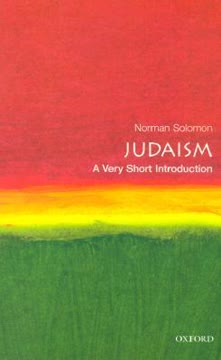
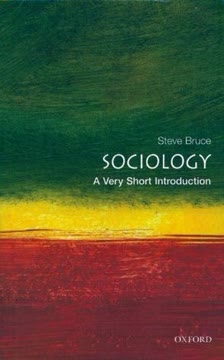
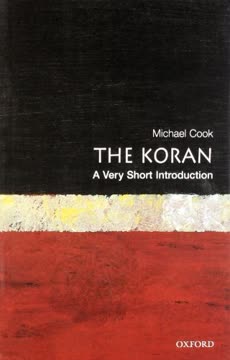
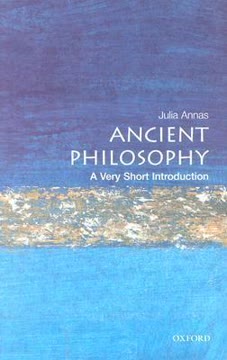
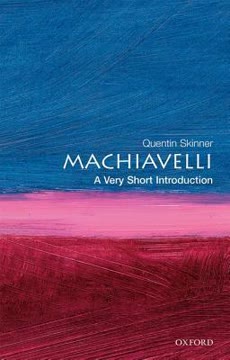
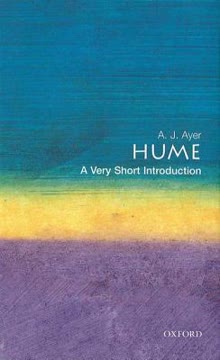

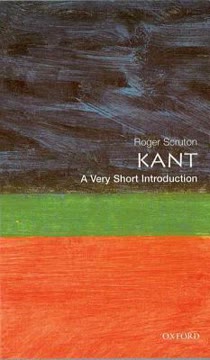
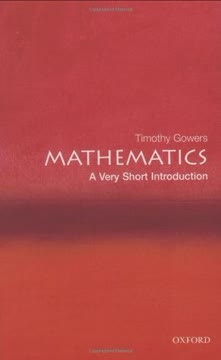
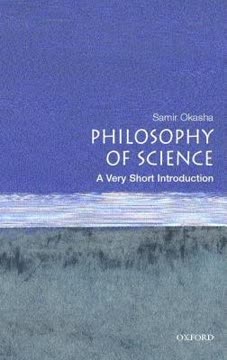
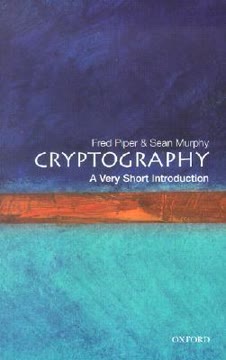
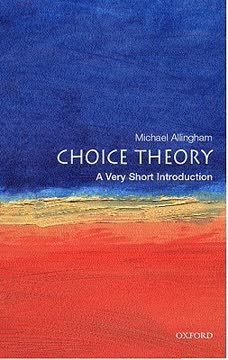
Similar Books


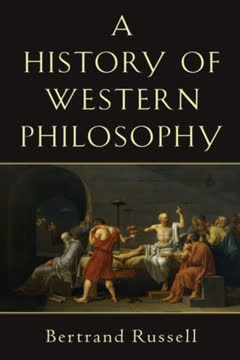


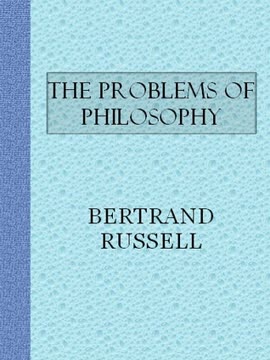



Download PDF
Download EPUB
.epub digital book format is ideal for reading ebooks on phones, tablets, and e-readers.












